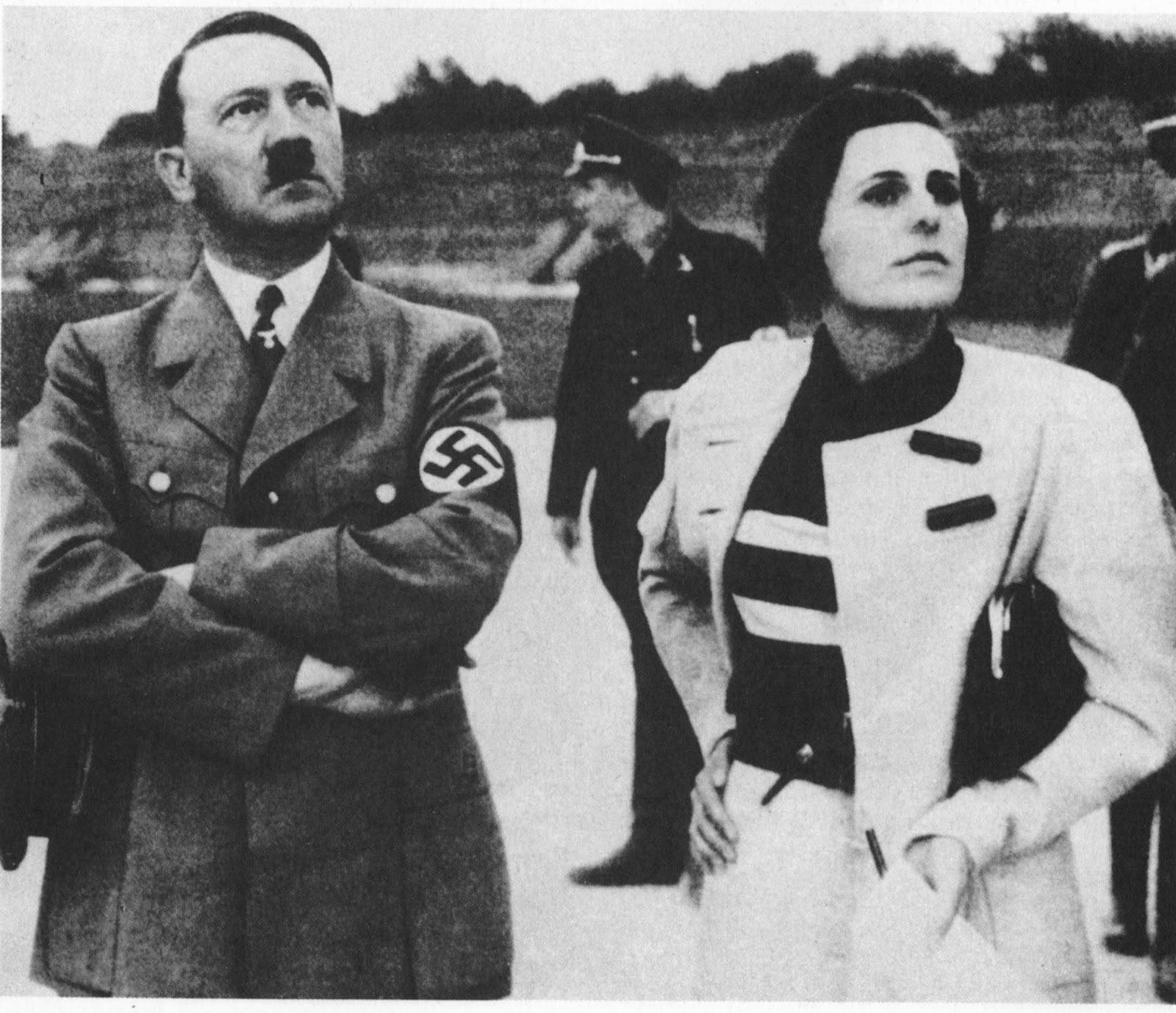The wonderful Longreads has republished Bruce Handy’s excellent 2013 Tin House piece, “Budd & Leni,” about the very unusual 1945 cinematic “collaboration” between screenwriter Schulberg, who eventually would name names for HUAC, and Nazi filmmaker Riefenstahl, who dearly wanted the world to forget the name of her former boss. An excerpt:
Riefenstahl had recovered her equilibrium, and her looks, by the time Schulberg found her in the autumn of 1945, possibly in the first week of November, not long before the Nuremberg trial was scheduled to begin. “She was still really quite beautiful and, if you could forget her connections, really very charming, and I would think that, to many people, very convincing in her intensity about her art, her love of the mountains, and winter sports,” he said years later. “She was really quite a—quite an imposing piece of work.”
This was the first meeting between the two, but Schulberg had played a very minor part—an extra in a crowd scene, if you will—in an earlier Riefenstahl drama. In 1938 she had made her first trip to America, ostensibly vacationing as a private citizen, although the visit was paid for by the German government. She was hoping to find an American distributor for Olympia—among her seventeen pieces of luggage she brought along three different cuts of the film, including one with all scenes of Hitler deleted—and hoping as well to hobnob with the powers that be in Hollywood, where German directors before her had found lucrative work (though they tended to be directors who hadn’t enjoyed Hitler’s patronage). She sailed into New York on November 4, hit the Stork Club and the Copacabana, and was famously pronounced “pretty as a Swastika” by Walter Winchell. But there were protests and boycotts organized against her by anti-Nazi organizations, and the PR equation grew even more complex a week later, following the events of Kristallnacht, when organized mobs throughout Germany beat and arrested thousands of Jews and murdered several hundred more while burning synagogues and looting Jewish businesses. She dismissed as “slander” news reports that, as Bach points out, “no one in Germany was denying.” (Rather, the Reich held the victims financially responsible for all the property damage.) Riefenstahl left New York for Chicago, and then Detroit, where she received an unsurprisingly warm welcome from Henry Ford, the anti-Semitic car manufacturer and crank publisher, but otherwise was treated like a pariah. Unlike her reception in New York, where her ship had been met by a big, jostling crowd of mostly friendly newsmen and photographers seeking a big story in Hitler’s alleged girlfriend (she and the Führer were “just good friends,” the director had demurred with a giggle), when she stepped off the Super Chief in Hollywood, on November 24, she was greeted by a desultory crowd consisting of the German consul, a staff member from a local German-language newspaper, an American painter who shared her and Hitler’s penchant for the idealized male physique, and the painter’s brother.
“Where is the press?” she demanded, according to her publicist (who defected to the States at the end of her trip and wrote an amusing if sometimes suspect series of articles about her for a Hollywood newspaper).
“But you’re supposed to be here incognito,” she was told.
“Ja, but not so incognito,” she snapped.
The reception went from bad to worse. The Hollywood Anti-Nazi League—a Communist-led group that Schulberg, then a party member, was likely part of—took out ads in the trade papers declaring, “There Is No Room in Hollywood for Leni Reifenstahl” while holding demonstrations in front of her hotel, the Garden of Allah, which forced her to relocate to a bungalow at the Beverly Hills Hotel. After some hemming and hawing, the town’s moguls declined to meet with her—with the exception of Walt Disney, who showed her some sketches for his latest work-in-progress, Fantasia, but then backed out of allowing her to screen Olympia for him, afraid that his unionized projectionists would spread the word and he’d be boycotted. (Decades later she would claim, incorrectly and ungraciously, that Olympia had beaten out Disney’s Snow White and the Seven Dwarfs for the then-coveted Mussolini Cup at the 1938 Venice Film Festival.)•
Tags: Budd Schulberg, Leni Riefenstahl

